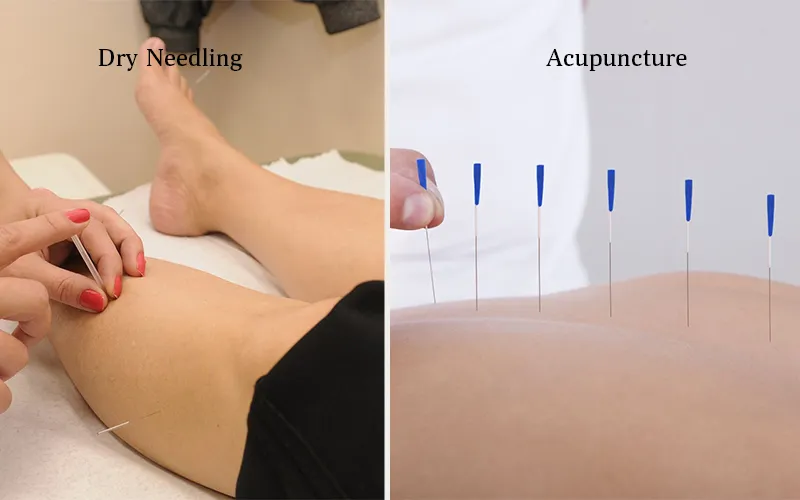Compare dry needling vs acupuncture at Spectrum Myotherapy Clinic in Berwick, led by Tracey Chappell, and make informed health decisions today.
Many people compare dry needling and acupuncture as options for pain management and overall well-being. Both therapies use fine, sterile needles but differ in technique and philosophy. Understanding these differences is vital for making informed health decisions on muscle tension, chronic pain, or stress.
Dry Needling vs Acupuncture: Key Differences Explained
Although dry needling and acupuncture may appear similar at first glance, their approaches, goals, and origins vary. The table below highlights the key differences to provide a clear and practical comparison:
| Aspect | Dry Needling | Acupuncture |
| Origin | Based on modern Western medicine | Rooted in Traditional Chinese Medicine |
| Philosophy | Targets myofascial trigger points to relieve muscle tension | Restores balance of energy (Qi) along meridians |
| Primary Goal | Reduce pain and improve muscle function | Enhance overall well-being and treat a wide range of conditions |
| Technique | Direct insertion into muscle knots and trigger points | Needle placement along energy pathways |
| Common Uses | Sports injuries, muscle tightness, localised pain | Stress, migraines, digestive issues, systemic health |
| Practitioners | Typically, physiotherapists, myotherapists, and allied health professionals | Trained acupuncturists and Chinese medicine practitioners |
Similarities Between Dry Needling and Acupuncture
• Use of Fine Needles – Both therapies involve the insertion of very thin, sterile needles. These are designed to minimise discomfort and ensure patient safety.
• Pain Relief and Relaxation Benefits – Both dry needling and acupuncture are commonly sought for pain relief. Patients often experience improved mobility, reduced tension, and a sense of relaxation following treatment.
• Complementary to Other Therapies – Both can complement physiotherapy, myotherapy, or massage therapy. Whether for recovery from sports injuries or for managing ongoing stress, integrating these treatments can support overall well-being.
FAQs About Dry Needling vs Acupuncture
Choosing between dry needling and acupuncture often leads to questions. Below are some of the most common queries patients ask when exploring these therapies.
Does dry needling hurt more than acupuncture?
Both treatments may cause mild discomfort, but neither is typically painful. Dry needling may produce a brief muscle twitch or tight sensation when a trigger point is activated, while acupuncture tends to feel gentler due to its holistic focus on energy flow.
Can you do both treatments together?
Yes, in some cases, patients may benefit from a combination of both approaches. However, the choice depends on individual health goals and practitioner recommendations. It is best to consult a qualified professional to determine which method, or combination, is most suitable.
How many sessions are usually needed?
The number of sessions varies depending on the condition being treated. Dry needling may provide noticeable relief after one or two sessions, particularly for localised muscle issues. Acupuncture often requires a series of treatments to achieve lasting results, especially when addressing systemic conditions.
Spectrum Myotherapy Clinic in Berwick – Your Trusted Choice for Dry Needling
When it comes to professional and personalised care, Spectrum Myotherapy Clinic in Berwick, led by Tracey Chappell, is committed to helping patients achieve optimal health outcomes. With extensive experience and a patient-focused approach, Tracey provides tailored dry needling treatments designed to address your unique needs.
If you are seeking relief from pain, muscle tightness, or stress, contact us at Spectrum Myotherapy Clinic in Berwick for evidence-based, compassionate care. Whether you are an athlete recovering from injury or someone managing ongoing discomfort, Tracey Chappell ensures every treatment is aligned with your health goals.
Related Blog Article: Myofascial Dry Needling: Pain Relief, Precision, and Recovery with Tracey Chappell

